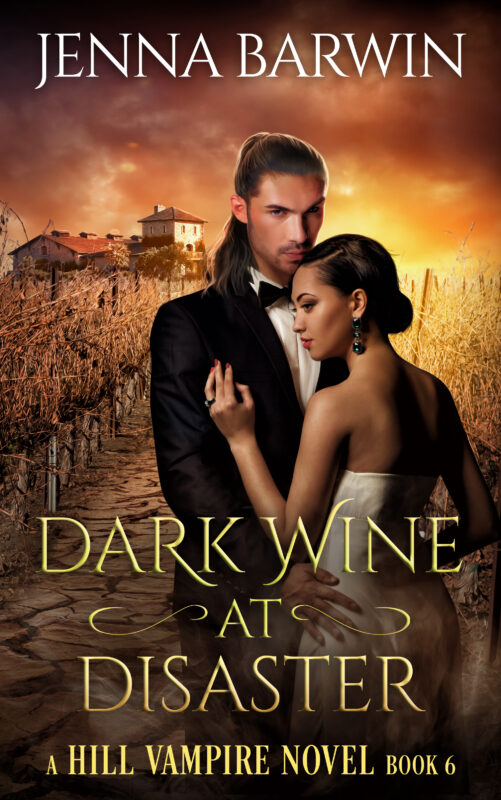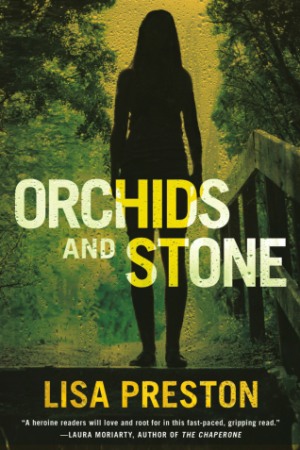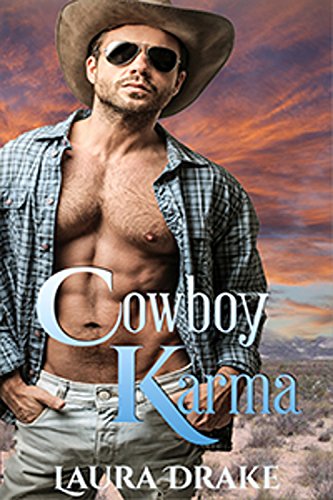My psychedelic bell bottoms and Audrey Hepburn shoes: How I turned my 1960s ‘stuff’ into a ‘happening’ at UC Irvine by Jina Bacarr
March 11, 2024 by Jina Bacarr in category Jina’s Book Chat, Writing tagged as 1960s, homecoming, memorabilia, reunion, UC Irvine alumniI write novels about Paris WW2, the US home front during WW2, the TITANIC, the Civil War.
I live and breathe history.
So it’s no surprise I collect ‘stuff’ from history. Vintage clothes, chinaware. Jewelry.
And my own history, too. Childhood, teen years… and university life.
When I had the opportunity to help plan the Golden Anteater Society Event at the University of Caliornia Irvine (alumni who graduated from the mid-sixties to 1974), I mentioned I had cool stuff from the 1960s and voilà! My collection became part of the ‘memorabilia room’ at the University Club on campus. I was so excited to see alumni checking out record albums, university newspapers, Beatles magazines, Buffalo Springfield poster, mini-dresses, those psychedekic bell bottoms, and my hippie fringe purse.
The event was sold out!
I was also excited to display my latest Boldwood Books historical novel, Sisters At War (mentioned in my Letter to the Editor in The New York Times–you’ll see what I mean in the video along with the UCI event). I’ve come a long way since I was a student at UCI writing stories and dreaming of faraway places.
So many adventures since then… I drew upon the most difficult for inspiration to write Sisters At War about sexual assault against women. I never felt more vulnerble in my life as when I was writing Sisters At War and now the sequel Sisters of the Resistance.
A road that led me around the world and back home to the university when I clicked my heels three times.
Wearing my Audrey Hepburn silver slippers.
Jina
0 0 Read moreUp the Down Staircase
February 3, 2022 by Janet Elizabeth Lynn and Will Zeilinger in category Partners in Crime by Janet Elizabeth Lynn & Will Zeilinger, Vintage 1960s Books tagged as 1960s, new series, setting the stage, writing research
UP THE DOWN STAIRCASE
Bel Kaufmann
published in 1964
Prentice-Hall
Genre: Fiction, Drama
An instant bestseller when it was first published in 1964, Up the Down Staircase remains as poignant, devastating, laugh-out-loud funny, and relevant today as ever. It timelessly depicts a beleaguered public school system redeemed by teachers who love to teach and students who long to be recognized.
The Mystery of the Solway Firth Spaceman
July 3, 2021 by Janet Elizabeth Lynn and Will Zeilinger in category Partners in Crime by Janet Elizabeth Lynn & Will Zeilinger, Starting a Novel Series with a Partner by E. J. Williams tagged as 1960s, Men in Black, mystery, Photos, space, Spacemen
“We went on a normal outing and picked our spot,” Jim Templeton recalled of his May 23, 1964 outing. They sat down to take a picture of his 5-year-old daughter. He never expected anything out of the ordinary.

When they developed the pictures they found a figure of someone…or something.
Templeton contacted the Kodak Company. They found nothing out of the ordinary and offered a reward to anyone who could prove the photo was faked. Interestingly enough, the reward was never claimed.
The photograph eventually came to the attention of the local paper, the Cumberland News. A media frenzy followed. It was picked up by the Daily Mail and Express. Mr. Templeton began receiving letters from all over the world.
He then received a visit from two “Men in Black” who wanted to be taken to the location where the image was taken. They referred to each other only as Number 9 and Number 11.
Just days after Templeton had taken his photograph, the planned launch of a Blue Streak missile in Woomera, South Australia on the other side of the world was aborted by technicians who reported seeing two men in the firing range. Upon later seeing the Solway Spaceman picture on the front page of an Australian newspaper, they were stunned as the figure looked the same as the figures they saw close to the missile.


Templeton’s picture spiked public interest due to the space race between the United States and Soviet Union, and because the image behind his daughter looked like a NASA Astronaut.
More than four decades later, an explanation was finally found. Another photo taken that same day showed Elizabeth and her mother Annie. Annie was wearing a sleeveless dress of a very light blue color. They deducted that the “spaceman” was just Annie, with her hair tied giving the impression of an astronaut visor, walking away from her daughter. Templeton, however, remembers his wife was standing behind him when the photo was taken.
The eerie photograph can still send a chill
Janet Elizabeth Lynn
Author of mysteries, checkout my website
Check out our latest Skylar Drake Mystery.
Click on the covers for more information. Hover over the cover for buy links,
Music by E. J. Williams
February 3, 2021 by Janet Elizabeth Lynn and Will Zeilinger in category Partners in Crime by Janet Elizabeth Lynn & Will Zeilinger tagged as 1960s, Billboard top 10, E.J. Williams, music, Research for Writers
Music
The Top 10 1960s Billboard Hits
Enjoy the waltz down memory lane!

- 1960 A Summer Place Theme recorded by Percy Faith and orchestra

2. 1961 Tossin and Turnin by Bobby Lewis

3. 1962 Stranger on the Shore by Mr. Acker Bilk

4. 1963 Sugar Shack by Jimmy Gilmer and the Fireballs

5. 1964 I Want to Hold Your Hand by The Beatles (Ed Sullivan Show)

6. 1965 I Can’t Get No Satisfaction by The Rolling Stones

7. 1966 Ballad of the Green Berets by SSgt. Barry Sadler

8. 1967 To Sir with Love by Lulu

9. 1968 Hey Jude by The Beatles

10. 1969 Sugar, Sugar by The Archies (You’ll get a kick out of the animation.)
The Demise of the Little Nash Metropolitan
June 3, 2020 by Janet Elizabeth Lynn and Will Zeilinger in category Partners in Crime by Janet Elizabeth Lynn & Will Zeilinger, Writing tagged as 1960s, Nash Metropolitian, sub-compact car, writing research
The Little Nash Metropolitan
After World War II, the American public wanted new cars, not rehashed models from before production halted in 1942 for national emergency production. As a result, U.S. carmakers offered products in all price ranges.
Returning GIs started families, the suburbs grew at an unprecedented rate and peaked in the 1960s. Many growing families had moved away from the cities and needed economical ways to commute to their jobs in the cities.
Enter, the American-designed and British-built, Nash Metropolitan measured less than thirteen feet in length, and was often called America’s first sub-compact car. Production began in October 1953. Over the next eight years, over 95,000 Metropolitans were produced and sold by Nash/Hudson, then Rambler, and finally AMC.
The Second Car
They designed it as a second car in a two-car family, for Mom taking the kids to school or shopping, or for Dad to drive to the railroad station to ride to work. A commuter/shopping car with a resemblance to the big Nash, but the scale was tiny. The Metropolitan’s wheelbase was shorter than the Volkswagen Beetle.
The miniscule two-seater came as convertible or hardtop models. No extra-cost, standard features (optional on most cars of that time) included electric windshield wipers, cigarette lighter, interior map light, and a continental-type rear-mounted spare tire with cover. While an AM radio, heater, and whitewall tires were listed as optional extras, it appeared all Metros left the factory with these items. Trunk space was accessed by folding the seatback forward.
In December 1956, the Austin Motor Company of Britain acquired the rights to sell the Metropolitan to non-North American markets. Modifications allowed manufacture of both left and right-hand drive models.
Several more changes came in 1959, including a glove box door, seat adjusters, vent windows, opening trunk lid and tubeless tires. The last Metropolitans came with a British-made 55 hp Austin engine.
Production of the funny little car stopped in 1960, but ‘leftovers’ were sold for under $1700 for another two years.
In popular culture, “The Little Nash Rambler” song was released in 1958 and often thought to refer to this teeny car. It was actually based on the larger, four-seat, Nash Rambler.
With the 1960s, came the birth of “muscle cars”, cheap gasoline and the need for speed. National pastimes included drag racing, and a return to NASCAR racing.
While some manufacturers offered one or two “economy” models like the Chevrolet Corvair and Ford Falcon, the little Metropolitan had no future. It faded into memory and became a curiosity for collectors.
Hollywood did not forget. The little car can be seen in: Clueless (1995), The Wedding Singer (1998), Blue Hawaii (1961) and others. It made many TV appearances, including Starsky & Hutch, The Ghost Whisperer, Square Pegs, and even The Simpsons!
The Little Nash Rambler
(Because I Couldn’t Resist)
Affiliate Links
A Slice of Orange is an affiliate with some of the booksellers listed on this website, including Barnes & Nobel, Books A Million, iBooks, Kobo, and Smashwords. This means A Slice of Orange may earn a small advertising fee from sales made through the links used on this website. There are reminders of these affiliate links on the pages for individual books.
Search A Slice of Orange
Find a Column
Archives
Featured Books
A CHRISTMAS CITY CHRISTMAS
Will they have a normal Christmas? Probably not.
More info →ORCHIDS AND STONE
They’re trying to take me. Help! Help me, please.
More info →COWBOY KARMA
Karma is a good judge of character, and you my friend, are screwed
More info →Newsletter
Contributing Authors
Search A Slice of Orange
Find a Column
Archives
Authors in the Bookstore
- A. E. Decker
- A. J. Scudiere
- A.J. Sidransky
- Abby Collette
- Alanna Lucus
- Albert Marrin
- Alice Duncan
- Alina K. Field
- Alison Green Myers
- Andi Lawrencovna
- Andrew C Raiford
- Angela Pryce
- Aviva Vaughn
- Barbara Ankrum
- Bethlehem Writers Group, LLC
- Carol L. Wright
- Celeste Barclay
- Christina Alexandra
- Christopher D. Ochs
- Claire Davon
- Claire Naden
- Courtnee Turner Hoyle
- Courtney Annicchiarico
- D. Lieber
- Daniel V. Meier Jr.
- Debra Dixon
- Debra H. Goldstein
- Debra Holland
- Dee Ann Palmer
- Denise M. Colby
- Diane Benefiel
- Diane Sismour
- Dianna Sinovic
- DT Krippene
- E.B. Dawson
- Emilie Dallaire
- Emily Brightwell
- Emily PW Murphy
- Fae Rowen
- Faith L. Justice
- Frances Amati
- Geralyn Corcillo
- Glynnis Campbell
- Greg Jolley
- H. O. Charles
- Jaclyn Roché
- Jacqueline Diamond
- Janet Lynn and Will Zeilinger
- Jeff Baird
- Jenna Barwin
- Jenne Kern
- Jennifer D. Bokal
- Jennifer Lyon
- Jerome W. McFadden
- Jill Piscitello
- Jina Bacarr
- Jo A. Hiestand
- Jodi Bogert
- Jolina Petersheim
- Jonathan Maberry
- Joy Allyson
- Judy Duarte
- Justin Murphy
- Justine Davis
- Kat Martin
- Kidd Wadsworth
- Kitty Bucholtz
- Kristy Tate
- Larry Deibert
- Larry Hamilton
- Laura Drake
- Laurie Stevens
- Leslie Knowles
- Li-Ying Lundquist
- Linda Carroll-Bradd
- Linda Lappin
- Linda McLaughlin
- Linda O. Johnston
- Lisa Preston
- Lolo Paige
- Loran Holt
- Lyssa Kay Adams
- Madeline Ash
- Margarita Engle
- Marguerite Quantaine
- Marianne H. Donley
- Mary Castillo
- Maureen Klovers
- Megan Haskell
- Melanie Waterbury
- Melisa Rivero
- Melissa Chambers
- Melodie Winawer
- Meriam Wilhelm
- Mikel J. Wilson
- Mindy Neff
- Monica McCabe
- Nancy Brashear
- Neetu Malik
- Nikki Prince
- Once Upon Anthologies
- Paula Gail Benson
- Penny Reid
- Peter Barbour
- Priscilla Oliveras
- R. H. Kohno
- Rachel Hailey
- Ralph Hieb
- Ramcy Diek
- Ransom Stephens
- Rebecca Forster
- Renae Wrich
- Roxy Matthews
- Ryder Hunte Clancy
- Sally Paradysz
- Sheila Colón-Bagley
- Simone de Muñoz
- Sophie Barnes
- Susan Squires
- T. D. Fox
- Tara C. Allred
- Tara Lain
- Tari Lynn Jewett
- Terri Osburn
- Tracy Reed
- Vera Jane Cook
- Vicki Crum
- Writing Something Romantic
Affiliate Links
A Slice of Orange is an affiliate with some of the booksellers listed on this website, including Barnes & Nobel, Books A Million, iBooks, Kobo, and Smashwords. This means A Slice of Orange may earn a small advertising fee from sales made through the links used on this website. There are reminders of these affiliate links on the pages for individual books.































































